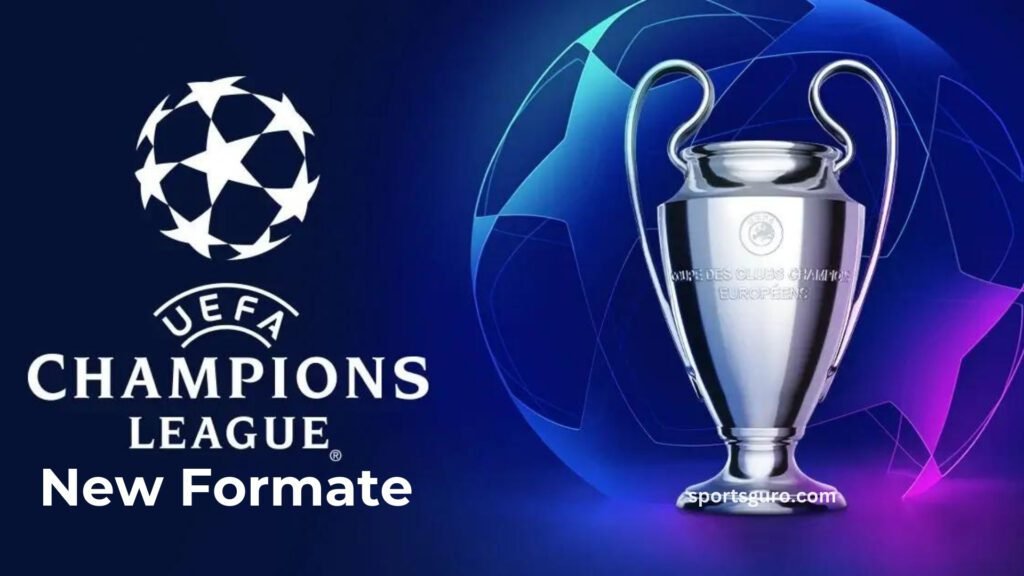The UEFA Women’s Champions League 2024/2025 is shaping up to be one of the most thrilling seasons in women’s football history. With the sport growing rapidly in both popularity and quality, this tournament unites Europe’s best teams in a battle for the prestigious title. Fans across the globe are eagerly awaiting high-class football, intense rivalries, and stellar performances from the sport’s biggest stars. In this article, we’ll explore the tournament’s structure, examine the top contenders, highlight key dates, and guide you on how to watch the action live. Whether you’re a seasoned fan or new to the Women’s Champions League, this article will cover everything you need to know. How Does the UEFA Women’s Champions League Work? The UEFA Women’s Champions League follows a familiar yet refined format to ensure that only the best clubs reach the final stages. Let’s dive into the tournament’s structure for the upcoming season. 1. Qualification Rounds The journey to becoming European champions begins with the qualification rounds. These matches take place during the summer, allowing smaller clubs a chance to compete for a spot in the group stage. Unlike the men’s tournament, many teams in the women’s competition must first navigate these challenging ties. In particular, clubs from lower-ranked nations in Europe, as well as second- or third-place finishers from stronger leagues, participate in these rounds. It’s a fiercely competitive phase, where lesser-known teams fight for the opportunity to face Europe’s powerhouses in the group stage. 2. Group Stage Once the qualification rounds conclude, the group stage begins in October, featuring 16 teams divided into four groups. Each team plays six matches — three at home and three away — ensuring fans witness their favorite clubs on the European stage. At the end of this phase, the top two teams from each group progress to the knockout rounds. Here, the intensity ramps up, as teams face elimination in their quest to reach the final. 3. Knockout Rounds The knockout stages are where champions are truly made. Starting with the quarter-finals, matches are played over two legs — one at home and one away. The aggregate score determines which team advances. If tied on goals, the away goals rule no longer applies (since 2021), and matches may go to extra time or penalties. The semi-finals follow the same two-leg format, while the final is a one-off match played at a neutral venue. Which Teams Are the Top Contenders? Each season, a few teams stand out as favorites based on their squad strength, history in the competition, or current form in domestic leagues. Here’s a look at the top contenders for the 2024/2025 title. 1. FC Barcelona Women FC Barcelona, the reigning champions, have been exceptional in recent years. Their dominance in both domestic and European competitions makes them one of the most feared teams in women’s football. Barcelona’s slick, possession-based play, combined with clinical finishing, continues to fuel their success. Led by two-time Ballon d’Or winner Alexia Putellas, Barcelona boasts world-class talent, including Aitana Bonmatí and Caroline Graham Hansen. This star-studded squad aims to defend their title and cement their reign as Europe’s top club. 2. Olympique Lyonnais Féminin While Barcelona has risen in prominence, Olympique Lyonnais Féminin remains a giant in women’s football. With a record eight UEFA Women’s Champions League titles (as of 2023), Lyon’s legacy is unmatched. They have both seasoned veterans and young stars in their squad. Players like Ada Hegerberg and Wendie Renard bring a wealth of experience, making Lyon a perennial favorite. Despite recent setbacks, Lyon is hungry to reclaim their dominance in European football. 3. Chelsea FC Women Under the leadership of Emma Hayes, Chelsea FC Women has steadily built a squad capable of winning the Champions League. After reaching the final in 2021, the London-based club is determined to go all the way. With stars like Sam Kerr and Fran Kirby, Chelsea’s balanced team excels in both attack and defense. Their ambition to challenge the likes of Barcelona and Lyon makes them a top contender. 4. VfL Wolfsburg VfL Wolfsburg, a consistent force in women’s football, has won the Champions League twice (2013 and 2014). Known for their disciplined and physical style of play, Wolfsburg regularly reach the latter stages of the competition. With key players like Alexandra Popp and Jill Roord, Wolfsburg combines experience with tactical discipline. This season, they will aim for a third Champions League trophy. Key Dates and Schedule for the 2024/2025 UEFA Women’s Champions League The tournament runs throughout the season, with fixtures scheduled across Europe. Here are some key dates: The final, played as a one-off match at a neutral venue, crowns the European champions. How to Watch the 2024/2025 UEFA Women’s Champions League Fans can watch the UEFA Women’s Champions League through various broadcasters and streaming services: Conclusion The 2024/2025 UEFA Women’s Champions League promises an exhilarating season filled with drama and skill. With top clubs competing for the prestigious title, this tournament continues to elevate women’s football globally. Whether you’re rooting for the reigning champions or hoping for an underdog story, this season is one you won’t want to miss. Make sure to mark your calendar for the key dates, follow your favorite teams, and enjoy the best of European football. Read more FAQs 1. What is the format of the tournament? The tournament starts with qualification rounds, followed by a group stage with 16 teams. The top two from each group advance to the knockout rounds, leading to a final. 2. When does the tournament take place? The qualification rounds are in July-August 2024, the group stage is from October to December 2024, and the knockout rounds start in March 2025. The final is in May 2025. 3. Who are the favorites to win? Top contenders include FC Barcelona, Olympique Lyonnais, Chelsea FC Women, and VfL Wolfsburg. 4. How can I watch the matches live? You can watch matches on DAZN, UEFA.tv, and various local broadcasters like BT Sport and ESPN. Some matches may also be on





